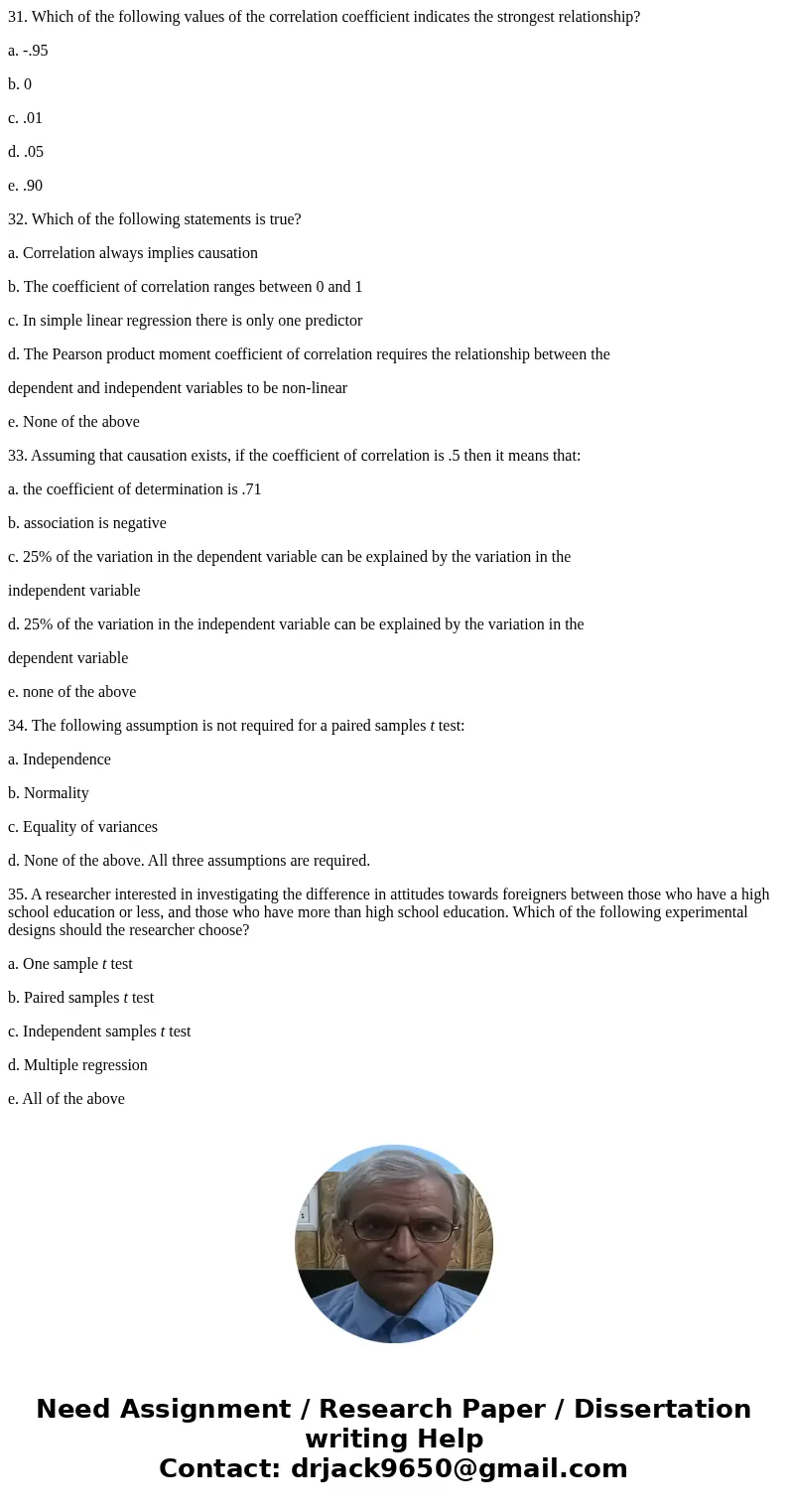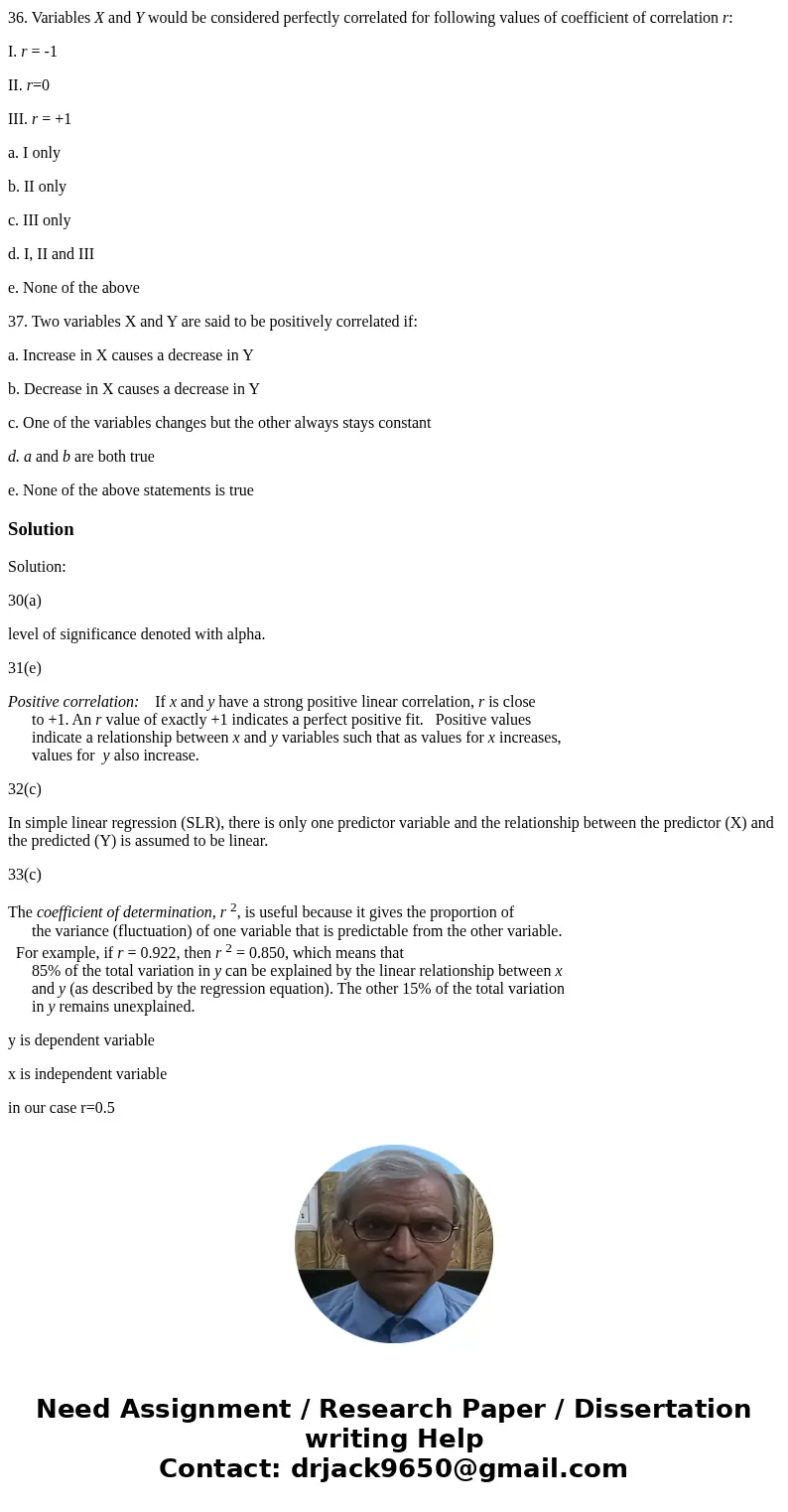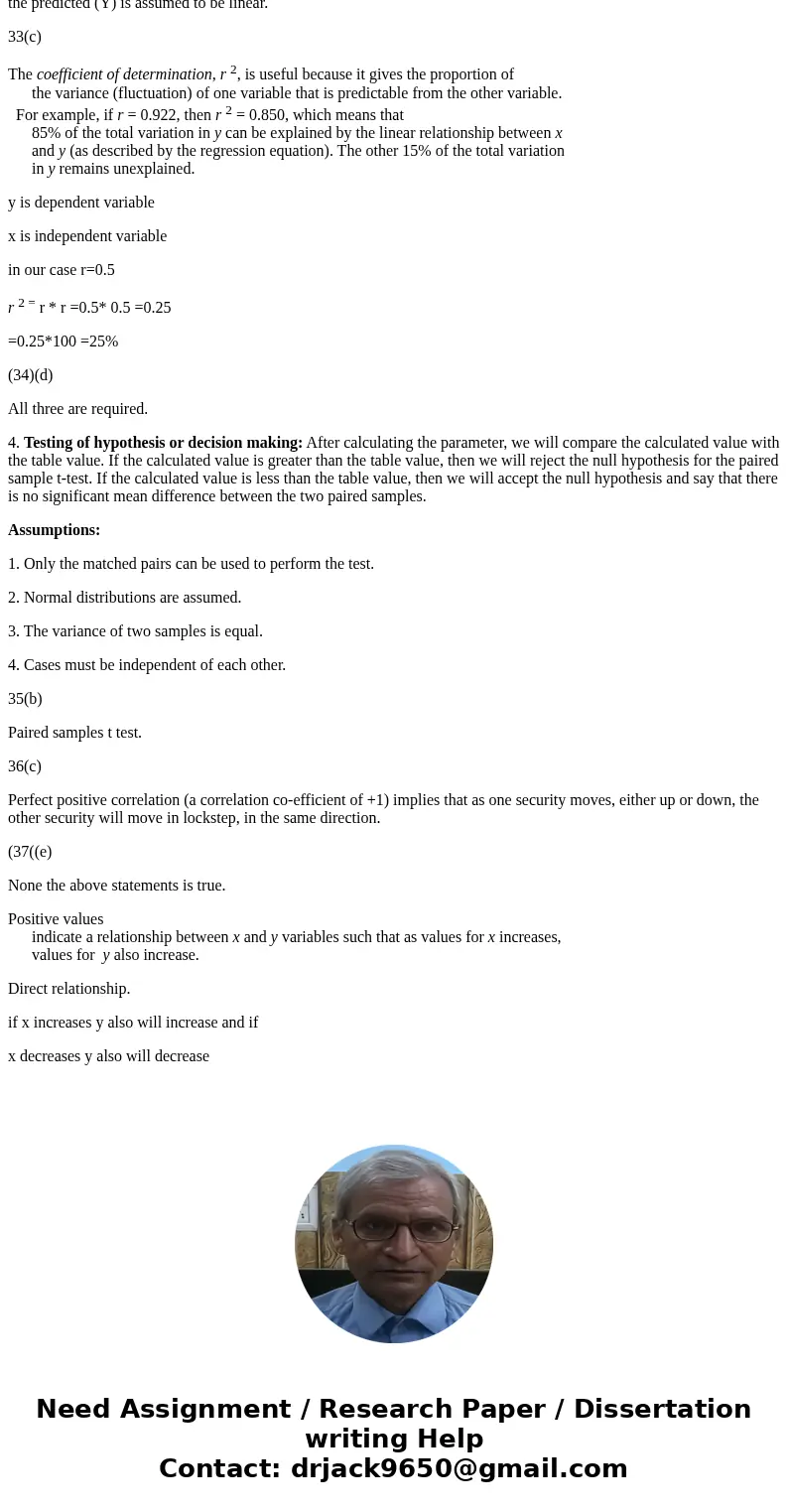31 Which of the following values of the correlation coeffici
31. Which of the following values of the correlation coefficient indicates the strongest relationship?
a. -.95
b. 0
c. .01
d. .05
e. .90
32. Which of the following statements is true?
a. Correlation always implies causation
b. The coefficient of correlation ranges between 0 and 1
c. In simple linear regression there is only one predictor
d. The Pearson product moment coefficient of correlation requires the relationship between the
dependent and independent variables to be non-linear
e. None of the above
33. Assuming that causation exists, if the coefficient of correlation is .5 then it means that:
a. the coefficient of determination is .71
b. association is negative
c. 25% of the variation in the dependent variable can be explained by the variation in the
independent variable
d. 25% of the variation in the independent variable can be explained by the variation in the
dependent variable
e. none of the above
34. The following assumption is not required for a paired samples t test:
a. Independence
b. Normality
c. Equality of variances
d. None of the above. All three assumptions are required.
35. A researcher interested in investigating the difference in attitudes towards foreigners between those who have a high school education or less, and those who have more than high school education. Which of the following experimental designs should the researcher choose?
a. One sample t test
b. Paired samples t test
c. Independent samples t test
d. Multiple regression
e. All of the above
36. Variables X and Y would be considered perfectly correlated for following values of coefficient of correlation r:
I. r = -1
II. r=0
III. r = +1
a. I only
b. II only
c. III only
d. I, II and III
e. None of the above
37. Two variables X and Y are said to be positively correlated if:
a. Increase in X causes a decrease in Y
b. Decrease in X causes a decrease in Y
c. One of the variables changes but the other always stays constant
d. a and b are both true
e. None of the above statements is true
Solution
Solution:
30(a)
level of significance denoted with alpha.
31(e)
Positive correlation: If x and y have a strong positive linear correlation, r is close
to +1. An r value of exactly +1 indicates a perfect positive fit. Positive values
indicate a relationship between x and y variables such that as values for x increases,
values for y also increase.
32(c)
In simple linear regression (SLR), there is only one predictor variable and the relationship between the predictor (X) and the predicted (Y) is assumed to be linear.
33(c)
The coefficient of determination, r 2, is useful because it gives the proportion of
the variance (fluctuation) of one variable that is predictable from the other variable.
For example, if r = 0.922, then r 2 = 0.850, which means that
85% of the total variation in y can be explained by the linear relationship between x
and y (as described by the regression equation). The other 15% of the total variation
in y remains unexplained.
y is dependent variable
x is independent variable
in our case r=0.5
r 2 = r * r =0.5* 0.5 =0.25
=0.25*100 =25%
(34)(d)
All three are required.
4. Testing of hypothesis or decision making: After calculating the parameter, we will compare the calculated value with the table value. If the calculated value is greater than the table value, then we will reject the null hypothesis for the paired sample t-test. If the calculated value is less than the table value, then we will accept the null hypothesis and say that there is no significant mean difference between the two paired samples.
Assumptions:
1. Only the matched pairs can be used to perform the test.
2. Normal distributions are assumed.
3. The variance of two samples is equal.
4. Cases must be independent of each other.
35(b)
Paired samples t test.
36(c)
Perfect positive correlation (a correlation co-efficient of +1) implies that as one security moves, either up or down, the other security will move in lockstep, in the same direction.
(37((e)
None the above statements is true.
Positive values
indicate a relationship between x and y variables such that as values for x increases,
values for y also increase.
Direct relationship.
if x increases y also will increase and if
x decreases y also will decrease



 Homework Sourse
Homework Sourse